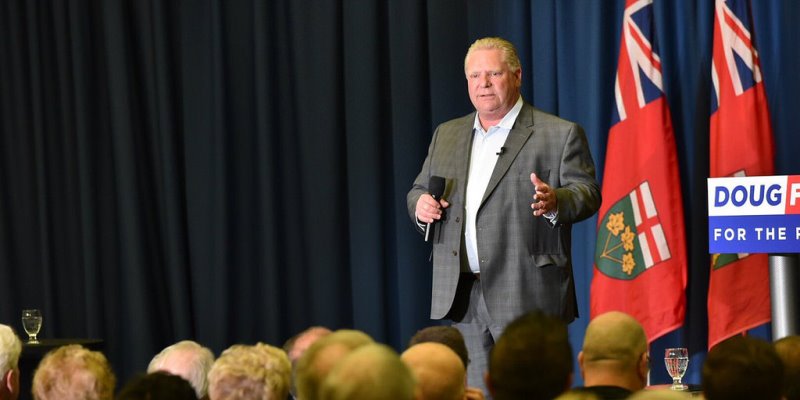Ontario government again breaks promise to reduce taxes

On Tuesday, the Ford government released its 2024 budget and once again failed to keep its promise to reduce personal income tax rates, despite the economic consequences of the status quo. Instead, Premier Ford, who once said “the worst place you can hand your money over is to the government,” has once again followed in the footsteps of his predecessors.
Remember, in 2012 then-premier Dalton McGuinty promised that if re-elected he would not raise taxes on Ontarians. Yet following the election, the McGuinty government broke this promise and introduced new surtaxes that effectively raised tax rates on some Ontarians. This tax increase was supposed to be temporary and eliminated in 2017/18, but the Wynne government ignored this commitment and left the higher tax rates in place.
By failing to reduce personal income tax rates, the Ford government is employing the same approach and ignoring the wishes of Ontarians who, according to polling data, strongly believe the average family is overtaxed. And as a result, Ontario’s uncompetitively high personal income tax rates remain untouched.
Which is a big problem because Ontario has some of the highest personal income tax rates in North America. Among 61 Canadian and U.S. jurisdictions, Ontario’s top combined (federal and provincial) personal income tax rate ranked third-highest at 53.5 per cent in 2023. The province’s rates are similarly uncompetitive at lower income levels as well. For example, Ontarians earning C$50,000 face a higher combined tax rate than workers in every U.S. state.
Of course, high personal income tax rates leave Ontarians with less money in their pockets, but they can also reduce economic growth by discouraging productive economic activity (work, investment, entrepreneurship), which ultimately results in lower living standards.
Relatively high tax rates also make it harder for Ontario to attract high-skilled workers such as doctors, engineers and entrepreneurs. While taxes aren’t the only factor people consider when determining where to live, provinces and states with lower income tax rates hold an advantage in attracting and retaining high-skilled workers.
Finally, in addition to leaving personal income taxes untouched, the Ford government’s budget projects a $9.8 billion deficit in 2024/25, delays budget balance until at least 2026/27, and cements Ontario’s status as one of the most heavily indebted provinces in the country. Consequently, by continually increasing spending and running deficits, the government has little to no fiscal room to reduce taxes.
For the sixth consecutive year, the Ford government has broken its promise to reduce taxes for Ontario workers. This despite the fact that reducing tax rates would help improve living standards in the province. And due to the Ford government’s penchant for high spending, there’s little hope for meaningful tax relief in sight.


